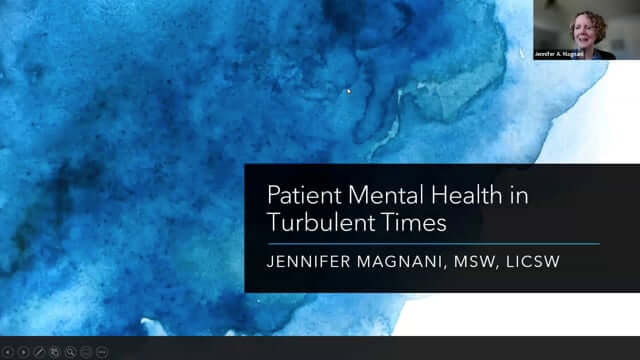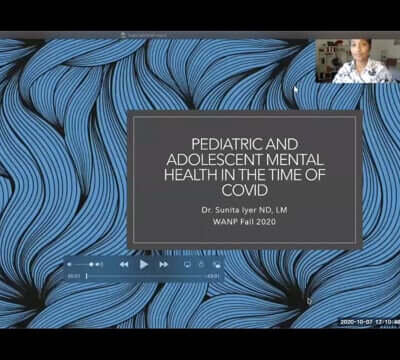Description
Even before the COVID pandemic, healthcare systems in Washington State were struggling to meet the mental health needs of patients. Mental health systems were overburdened and understaffed, with patients bearing the brunt of the system failures. Compounding these existing problems has been the dual pandemics of COVID and racism, which have left many patients in even higher levels of emotional distress. Depression and anxiety symptom rates have been soaring, as have the number of patients in a mental health crisis. As we transition to a life closer to our pre-COVID pandemic normal, research has shown that the sequelae from this last year will impact mental health for some time. And, while COVID fear is dimming, society will continue grappling with our racial reckoning, climate grief, the current political polarization. Many in our midst will continue to struggle. How do we meet the challenge of assessing who needs help and meeting their needs? This presentation will discuss the behavioral health impacts of the last year, with tools to help you help your patients.
Jennifer Magnani, MSW, LICSW, has been a social worker for over 20 years, and has worked in a number of clinical areas including Inpatient, Emergency, Ambulatory, Psychiatry, and Home Hospice. Jennifer earned her Master of Social Work from the University of Washington, and holds a BS in Journalism from the University of Kansas. Her current work is with the UW’s Department of Psychiatry and Behavioral Sciences, but she previously worked extensively at Harborview Medical Center and Providence Hospice. Jennifer is passionate about helping the most difficult to serve patients and creating health and social systems that work effectively.




